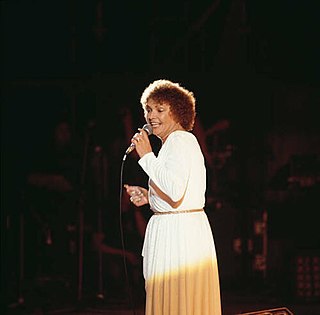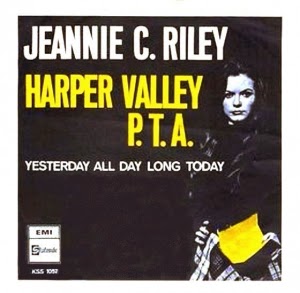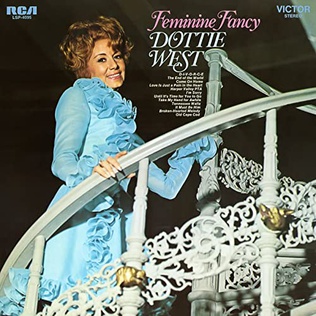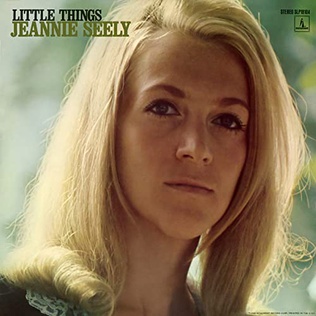The 11th Annual Grammy Awards were held on March 12, 1969. They recognized accomplishments of musicians for the year 1968.

Thomas Hall, known professionally as Tom T. Hall and informally nicknamed "the Storyteller", was an American country music singer-songwriter and short-story author. He wrote 12 No. 1 hit songs, with 26 more that reached the Top 10, including the No. 1 international pop crossover hit "Harper Valley PTA" and "I Love", which reached No. 12 on the Billboard Hot 100. He is included in Rolling Stone's list of 100 Greatest Songwriters.
Plantation Records was a country music record label of the 1960s and 1970s helmed by Shelby Singleton. The label is best known for Jeannie C. Riley's 1968 hit "Harper Valley PTA", which topped both the country and Billboard Hot 100 charts.

Billie Jo Spears was an American country music singer. She was known for a series of singles whose characters often represented women in assertive positions. Among these recordings was a song about sexual harassment, and a song about rekindling sexual desire ".

"Harper Valley PTA" is a country song written by Tom T. Hall, which in 1968 became a major international hit single for country singer Jeannie C. Riley. Riley's record, her debut, sold over six million copies as a single, and it made her the first woman to top both the Billboard Hot 100 and the U.S. Hot Country Singles charts with the same song, a feat that would not be repeated until Dolly Parton's "9 to 5" 13 years later in 1981. It was also Riley's only Top 40 pop hit.
This is a list of notable events in country music that took place in 1968.

In the Good Old Days (When Times Were Bad) is the third solo studio album by American singer-songwriter Dolly Parton. It was released on February 3, 1969, by RCA Victor. The album was produced by Bob Ferguson. It peaked at number 15 on the Billboard Top Country Albums chart. The album's title track was the only single released and it peaked at number 25 on the Billboard Hot Country Songs chart.
Margaret Louise Ebey, known professionally as Margie Singleton, is an American country music singer and songwriter. In the 1960s, she was a popular duet and solo recording artist, working with country stars George Jones and Faron Young. Singleton had her biggest hit with Young called "Keeping Up with the Joneses" in 1964. She managed a successful solo career in the 1960s.
Shelby Sumpter Singleton, Jr. was an American record producer and record label owner.

Feminine Fancy is a studio album by American country music artist Dottie West. It was released in December 1968 and was produced by Chet Atkins. The album was West's tenth studio recording and third to be released in 1968. It was the third album of West's career to not include any singles. Most of the album's 12 tracks were cover versions of country and pop hits of the era.

"Don't Touch Me" is a song written by Hank Cochran. It was originally written for and recorded by American country artist Jeannie Seely. The song was released as a single on Monument Records in March 1966 and became a major Billboard country hit. "Don't Touch Me" became Seely's signature song and her biggest hit as a solo artist. It would later appear on her debut studio album and be re-recorded by Seely in later years.

Your Squaw Is on the Warpath is thirteenth solo studio album by American country music singer-songwriter Loretta Lynn. It was released on February 17, 1969, by Decca Records.
Jerry Glenn Kennedy is an American record producer, songwriter and guitar player.

Linda Martell is an American singer. She became the first commercially successful black female artist in the country music field and the first to play the Grand Ole Opry. As one of the first African-American country performers, Martell helped influence the careers of future Nashville artists of color.
Benjamin James Peters was an American country music songwriter who wrote many #1 songs. Charley Pride recorded 68 of his songs and 6 of them went to #1 on the American country charts. Peters was inducted into the Nashville Songwriters Hall of Fame in 1980.

Songs That Made Country Girls Famous is a studio album by Lynn Anderson released in 1969. The album became Anderson's second top ten LP on Billboard's Top Country Albums chart, peaking at #9.
Margaret Ann Lewis was an American country music and rockabilly singer-songwriter and music entrepreneur.
Mira Ann Smith was an American songwriter, music industry pioneer, record label owner, studio engineer, and multi-instrumentalist. In 1955, she founded Royal Audio Music, Inc. and became one of the first women to own her own record company. Her success led some in the music business to dub her “the female Sam Phillips." Smith is most well known for the songs she wrote with singer/songwriter Margaret Lewis (Warwick), many of which charted on the Billboard Top 10. Smith and Lewis found their greatest songwriting success with singer Jeannie C. Riley, and wrote many of her songs including, “The Girl Most Likely”, “Oh Singer”, “The Rib” and “There Never Was a Time.” In addition, Smith and Lewis wrote hit songs for artists such as David Houston, Margaret Whiting, Peggy Scott and Jo Jo Benson ("Soulshake"). Four artists charted on Billboard with the Smith and Lewis song “Reconsider Me”: Johnny Adams (1969), Ray Pillow (1969), John Wesly Ryles (1971) and Narvel Felts (1975). Smith received six outstanding achievement awards from the Broadcast Music Industry (BMI). In 1988, she was inducted into the Southern Songwriters Hall of Fame, and in 1995 Smith was the first woman inducted into the Women in Music Hall of Fame.

Little Things is a studio album by American country artist Jeannie Seely. It was released on December 16, 1968, by Monument Records and was co-produced by Fred Foster and Jim Malloy. The record was Seely's fourth studio album recorded and released. It spawned three singles in 1968. Two of these singles became hits on the Billboard country chart. The album would be Seely's final studio release while recording for Monument.

The Voice of Billie Jo Spears is a studio album by American country artist Billie Jo Spears. It was released in November 1968 via Capitol Records and contained 11 tracks. The disc mixed both new recordings with original material and featured her first charting single: "He's Got More Love on His Little Finger". It was the debut studio album of Spears's career and received positive reviews from critics.











